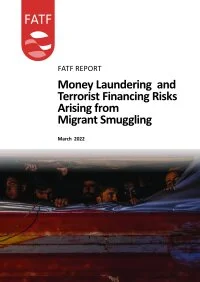By Jessica Davis
Illicit actors in Afghanistan, including drug traffickers, warlords, terrorist groups, and even former government officials, exploit the country to achieve their own political and economic objectives. Historical and contemporary sources demonstrate that there are patterns in how these actors raise, manage, store, move, and obscure money. This paper provides a historical and contemporary overview of illicit financing activities in Afghanistan. It uses a terrorist financing framework to explain the various mechanisms involved in how illicit actors raise, use, move, store, manage, and obscure their funds. Specific jurisdictions used for illicit finance and global financial vulnerabilities that illicit actors with a nexus to Afghanistan exploit in their financial activities are discussed, outlining the threat-agnostic capabilities that could tackle some of these illicit financial challenges.
To raise funds, illicit actors engage in the production and trafficking of narcotics, taxation and extortion activities, illegal mining and timber production, and any other activities that can generate revenues. Depending on the actor in question, management of the acquired funds might be centralised, within the purview of a financial head, or decentralised, with control vested within several stakeholders. Illicit actors store some of their funds in cash within Afghanistan and use hawalas and banks to both store and transfer wealth out of the country. Since the Taliban takeover, international sanctions have largely ended the ability of banks to transact with most aspects of the global financial sector, with the exception of regional banking relationships that remain intact. Therefore, in addition to hawalas, common methods of moving money out of Afghanistan include bulk cash couriers, the transfer of precious metals and stones, and trade-based money laundering schemes. Wealth is moved out of Afghanistan to several key jurisdictions. Much of it makes its way to the United Arab Emirates (UAE) where funds are invested in businesses and real estate. Funds are also moved to Pakistan, Turkey, and to a lesser extent Iran and other neighbouring or proximate countries.
The stability of illicit financing mechanisms over time and across illicit actors presents opportunities for detection and disruption. However, this also applies to limitations of disruption opportunities. Since illicit actors in Afghanistan raise most of their funds within the country, there are few opportunities to disrupt internal Afghan revenue sources in the post-August 2021 context. As such, other detection and disruption opportunities that can be used to combat illicit financing with a nexus to Afghanistan must be examined. The policy options elaborated in this report include: enhancing the monitoring of aid and donor funding entering the country, facilitating the adoption of foreign asset and beneficial ownership tracing, introducing reforms to the hawala and banking sectors, and addressing deficiencies in international sanctions regimes.
A regionally coordinated policy approach to counter illicit financing from Afghanistan can reduce the ability of illicit actors to access their wealth and fund their activities. However, without access to a cooperative government in Afghanistan, there are limits to what can be achieved. Nonetheless, many of the policy and disruption opportunities available to counter illicit Afghan finance also serve to strengthen the integrity of the global financial system, address existing policy gaps in other jurisdictions, and can generally serve to enhance international cooperation on counter-illicit financing.
SOC ACE Research Paper No 11.
Birmingham, UK: University of Birmingham, 2022. 32p.






